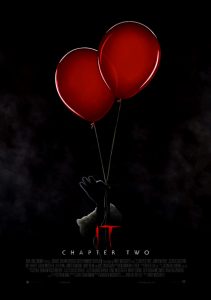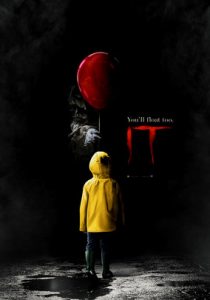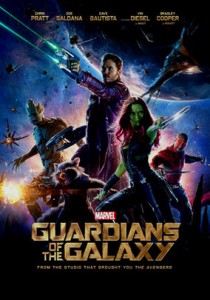IT: Chapter Two- 2019
Director Andy Muschietti
Starring James McAvoy, Jessica Chastain, Bill Hader
Scott’s Review #939
Reviewed September 11, 2019
Grade: B+
A companion piece to the first chapter, named It (2017), and an adaptation of the famous and chilling 1986 novel by horror novelist Stephen King, It: Chapter Two (2019) is a successful culmination of the vast story and will please many fans.
A box-office hit mixing straight-ahead horror with the supernatural, and a tad of adventure mixed in, the film is to be appreciated in many ways, though I slightly prefer the first chapter by measure.
Set in present times (2016), twenty-seven years after the first film took place, the Losers’ Club kids are now nearing middle age, in their forties.
The most prominent characters in the group, Beverly Marsh (Jessica Chastain), Bill Denbrough (James McAvoy), and Richie Tozier (Bill Hader) are summoned by childhood chum Mike Hanlon to return to the sleepy town of Derry, Maine, after a series of murders begin at the summer carnival.
Each of them, except for Mike, has fled the small town and found success in bustling cities, living prosperous lives.
Because of a promise made as kids, the entire group reunites except for Stanley Uris, who chooses to fatally slit his wrists in a bathtub rather than return and face evil Pennywise the Clown (Bill Skarsgard).
The six members wrestle with their demons and past mistakes while Pennywise takes the form of human beings and objects to terrorize the group, providing imagined and frenzied scares. At the same time, they scramble to perform a Native American ritual to destroy the beast.
It isn’t easy to write a successful review of It: Chapter Two as merely a stand-alone film since the two chapters are meant to be one cohesive, long film.
Filmed at the same time, the pacing and continuity are what make the experience an enjoyable one. The key is the interspersing of many scenes, a hybrid of childhood and adult sequences, which gives the film a cohesive package.
This style is a treat for viewers who have seen the first chapter two years ago. After the hoopla dies down, patient fans would do well to watch both chapters in sequence in back-to-back sittings for an undoubtedly pleasant experience.
Director Andres Muschietti wisely places focus on the characters so that the film is character-driven rather than plot-driven, a risk with anything in the horror genre.
Each of the six adults resembles the six kids in physical appearance, which makes the story believable. A major strength is the focus on each character individually, both in the present and in the past. Each faces insecurity, guilt, or mistakes, making them complex.
At a running time of two hours and forty-nine minutes, the film can take its time with character exploration and depth.
A nice add-on and deviating slightly from the King novel is a modern LGBTQ presence. It is implied (though I admittedly missed this when I saw the film) that Richie (Hader) is either gay or wrestling with his sexuality.
The pivotal final scenes depict Richie’s undying love for his lifelong friend Eddie, as one saves the other’s life only to sacrifice his own. The fact that the love is unrequited or unrealized is both sad and heartbreaking.
The gay-bashing opening sequence of Adrian Mellon and his boyfriend is quite a difficult watch, as is the lack of any comeuppance for their perpetrators, but the scene is faithful to King’s novel.
It is also a jarring reminder that in 2019, small towns are not always the safest place for the LGBTQ community, as far too often, small towns breed small minds.
The film could contain more jumps and scares than it does, and teeters a bit too long in the overall running time. While the focus on the character is excellent, the final climax and the battle with Pennywise are a slight letdown and feel predictable.
The film is not scary in terms of horror but does have nice special effects and visual razzle-dazzle, especially concerning Pennywise. The creepy clown is less frightening than in the first chapter, but perhaps this is due to becoming more familiar with him.
A treat for eagle-eyed fans is the cameo appearance by legendary author Stephen King. As a cantankerous pawn shop owner, he sells Bill the relic bicycle he had enjoyed in his youth.
For bonus points, Muschietti treats fans to a scene including filmmaker Peter Bogdanovich, who cameos as the director of the film based on Bill’s novel.
It: Chapter Two (2019) offers good entertainment and will please fans of the horror genre and the famous author, as the film is very faithful to the novel.
As a modern horror experience, the film is a solid win, though not without slight missteps. Superior in depth and character development to most films in the same vein, it is a film to be enjoyed and appreciated.


